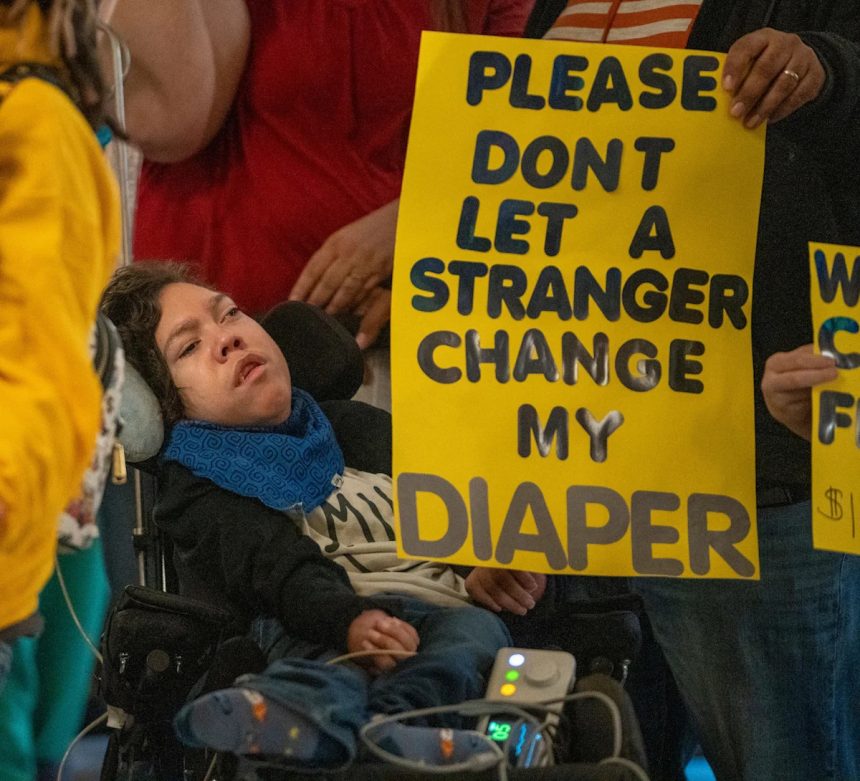A federal appeals court has ruled in favor of two medically fragile children from Indiana and their families who are fighting changes made by the state Family and Social Services Administration to a Medicaid waiver program.
Indiana Disability Rights and the ACLU of Indiana filed a lawsuit last May alleging that the state’s changes to its Health and Wellness Medicaid Waiver program, which impacted parents who were providing paid care to medically complex children, went against the Americans with Disabilities Act.
The U.S. Seventh Circuit Court of Appeals on Aug. 11 affirmed a district court’s prior preliminary injunction in favor of the families who sued.
“As the district court concluded, plaintiffs have a high likelihood of succeeding on the merits of their ADA claims,” according to the 50-page opinion. “Further, we find no abuse of discretion in the district court’s balancing of the equities or its assessment that the public interest is best served by preserving plaintiffs’ access to medically necessary care and enforcing federal antidiscrimination law.”
The decision doesn’t apply to the whole state. It means that, for now, the two families can continue to serve as paid providers of “attendant care” for their children, according to a press release from the ACLU.
Indiana Disability Rights said in a statement that the court’s decision recognized the likelihood that parents would have to make an “unthinkable” decision of placing their child in an institution.
“This decision reinforces the understanding that children with complex medical needs are best served when they can remain at home with their families,” said Sam Adams, senior attorney for Indiana Disability Rights. “The court found that there are steps that FSSA can and must take to help ensure these children remain safely in their families’ homes.”
The lawsuit stems back to the state Medicaid office’s discovery in late 2023 that there was a nearly $1 billion budget shortfall, leading it to seek cost-cutting measures. The agency decided it would no longer pay for parents or spouses to care for elderly or disabled loved ones, which is the program referred to as “attendant care.”
FSSA later moved to a new model that pays service providers a flat daily rate and passes on some of that money to families who care for people. But the new model amounts to a steep pay cut, according to those families.
The appeals court decision was, at times, scathing toward the state’s arguments in the case.
“To state FSSA’s argument is to refute it,” the decision reads at one point.
At another point, the opinion states that the state has “offered only doomsday predictions” that are “difficult to reconcile with the state’s apparent willingness to spend the same amount of money or more on other home-based services or to institutionalize plaintiffs and other waiver enrollees.”
The FSSA didn’t immediately reply to IndyStar’s request for comment about the impact of the federal court decision.
Contact senior government accountability reporter Hayleigh Colombo at hcolombo@indystar.com.
This article originally appeared on Indianapolis Star: Federal appeals court rules in favor of families fighting FSSA Medicaid change









